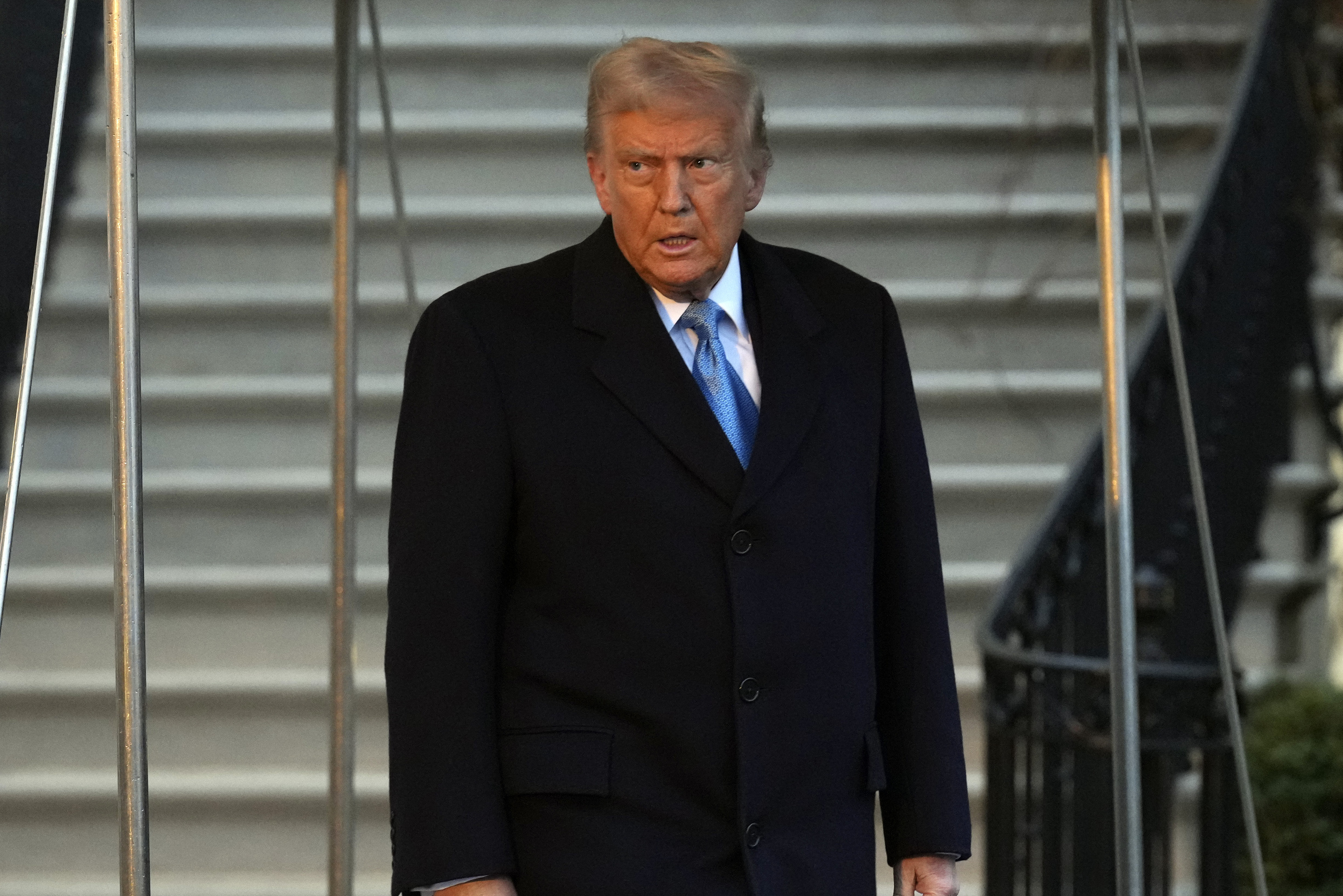United States President Donald Trump said on Friday that he will impose tariffs on the European Union in the future, the day before taxing products from China, Mexico, and Canada.
"Am I going to impose tariffs on the European Union? Do you want an honest answer or should I give you a political answer? Of course. The European Union has treated us terribly," Trump told reporters in the Oval Office.
This announcement by Trump comes after the White House immediately announced a 10% tariff on all goods imported from China and a 25% tariff on those from Mexico and Canada. Donald Trump is thus fulfilling his promise to launch a trade war against the United States' three main trading partners. In the case of China, the tariffs are due to "the illicit fentanyl that [that country] has created and distributed in our country," as stated yesterday in a press conference by White House spokesperson Karoline Leavitt. In reality, China does not produce fentanyl but rather chemicals necessary for the production of that drug.
It is estimated that around 70,000 Americans die each year from opioid consumption, initially created and marketed by U.S. companies - especially pharmaceuticals Purdue and Johnson & Johnson - and prescribed by doctors in that country, which, after being regulated by the country's authorities, were then manufactured and sold by trafficking mafias.
It is unclear whether Trump will carry out his threat. According to the 'Wall Street Journal', the president's advisors are trying to convince him to moderate these measures, which could have a devastating effect on the U.S.'s two neighbors and also a considerable impact on the U.S. economy. Former Canadian Minister of Economy Chrystia Freeland, who is now competing to be the next head of government in that country, has stated that if the U.S. implements these protectionist measures, Canada will respond with tariffs on Tesla electric cars, from Trump's advisor Elon Musk. Tesla has been losing market share in the U.S. for a year, and most of its profits in the fourth quarter of 2014, published this week, were due to its operations with cryptocurrencies and its sales in China.
Perhaps for that reason, Trump is being so moderate with Beijing, which, unlike Canada and Mexico, is not only not an ally but is also what the U.S. calls a "strategic competitor." Several major funders of Trump's campaign - starting with Musk and continuing with the world's most valuable company, Apple - as well as partners in his businesses - including Jeff Yass - have significant interests in China. Trump himself has stated that he does not rule out imposing tariffs on semiconductor imports from Taiwan, a country that China refuses to recognize and that Beijing has not renounced invading.
If Trump follows through with his decision, it would be a major political defeat for his Treasury Secretary, Scott Bessent, who has tried by all means to contain the president's 'tariff mania.' First, Bessent tried to offer a major deal to China in which that country would appreciate its currency in exchange for symbolic tariffs, in a repetition of the Plaza and Louvre Agreements between the U.S., Germany, and Japan in the 1980s. Trump's opposition torpedoed the idea before it could take off. Later, Bessent has tried to convince the president to raise tariffs at a rate of 2.5% monthly, thus forcing U.S. trading partners to make concessions.
At the moment, it is impossible to know what will happen. The increase in tariffs has very important enemies in the U.S., including Senator John Thune, who is the leader of the Republicans in the Senate and is not close to Trump. Thune represents South Dakota, an agricultural state whose economy was devastated in Trump's first term when he established trade barriers with China and the EU. The response from these partners was to raise their own tariffs on U.S. agricultural imports, which found themselves without markets to export to.
The absurdity reached tragicomic proportions when the U.S. Congress, at Trump's behest, had to approve more subsidies than U.S. farmers already receive to compensate for the loss of those markets. It is just one more example of the difficulties of 'closing' an economy. In fact, there are car models that cross the U.S.-Mexico border up to ten times in their manufacturing process until they are finished and ready to be put up for sale.
In the case of Mexico and Canada, in addition, the tariffs would be a blatant violation of the free trade agreement between those two countries and the U.S. To add insult to injury, that agreement, in effect since 1994, was renegotiated during Donald Trump's presidency at the president's behest, who now has discovered that he does not like what he himself signed.
Tariffs are very popular among Trump's base, which has created a climate of opinion that could be summarized as "the world is robbing us," with Hispanic resonances back in 2018. These voters attribute magical properties to tariffs, something consciously reinforced by Trump himself, who has been repeating the lie for years that exporters pay tariffs. In reality, importers, or rather U.S. companies that buy these products outside the country, pay the tariffs.
